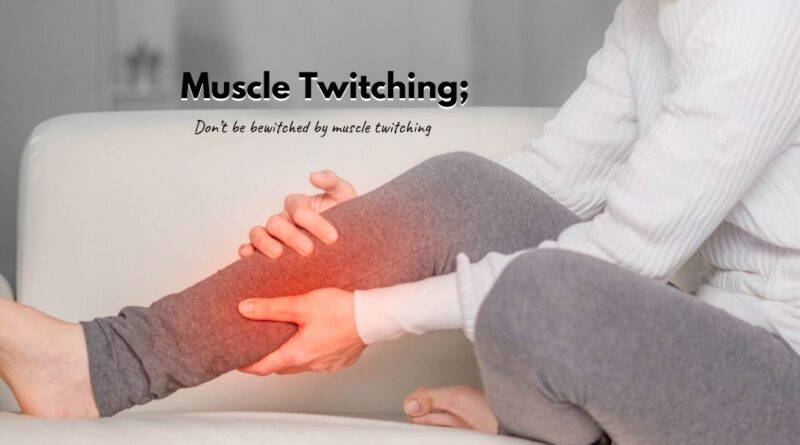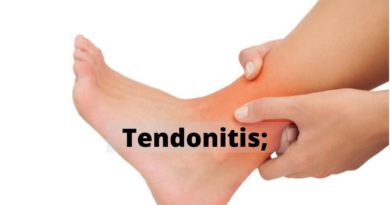Treat Muscle Twitching Using Simple Home Remedies
Also known as muscle fasciculation, muscle twitching is small muscle contractions in the body which happen when muscles tighten up involuntarily. In the majority of cases, muscle twitching goes unnoticed but repeated muscle twitching can indicate nerve damage.
Experiencing muscle twitching for prolonged periods can be uncomfortable. Some of the probable causes of it are:
- Overexertion: Too much exercise can trigger cramping and twitch in thighs, biceps, arms, etc.
- Inadequate sleep: Lack of sleep causes twitching and tiredness in the eyelids.
- Caffeine: Too much caffeine intake can trigger muscle twitching anywhere in the body.
- Dehydration: 75% of the human muscle is water. Not having enough water stresses the muscles which then causes cramping and twitching.
Calcium and Magnesium deficiency: Deficiency of them can cause hypocalcemia and hypomagnesemia respectively. They can cause muscle twitching in any part of the body.
Table of Contents
Symptoms of muscle twitching are:
- Muscle pain and cramping
- Weakness
- Loss in muscle size
- Stress and anxiety
Did you know?
| Muscles can’t push. They can only pull. |
Natural Remedies for Muscle Twitching
- Home Remedies
- Herbal Remedies
- Foods
- Essential Oils
- Supplements
CURE 1: Home Remedies
1. Rest
- Rest relaxes the muscles and gives them time to heal.
- Avoid extra work and exercise and try to sleep for around 6-7 hours a day.
2. Stretching

- Stretching helps stop the twitching and cramping by improving blood circulation.
- You can stretch the affected area by pulling it forward or holding it tightly while massaging till the spasms stop.
Do this for 15-20 minutes continuously until the twitching and cramping subside.
3. Hydration
- Water keeps the muscle healthy and stress-free due to over exercise and lack of rest.
- Women should drink around 2.7 liters of every day whereas men should drink around 3.7 liters.
4. Ice or Heat
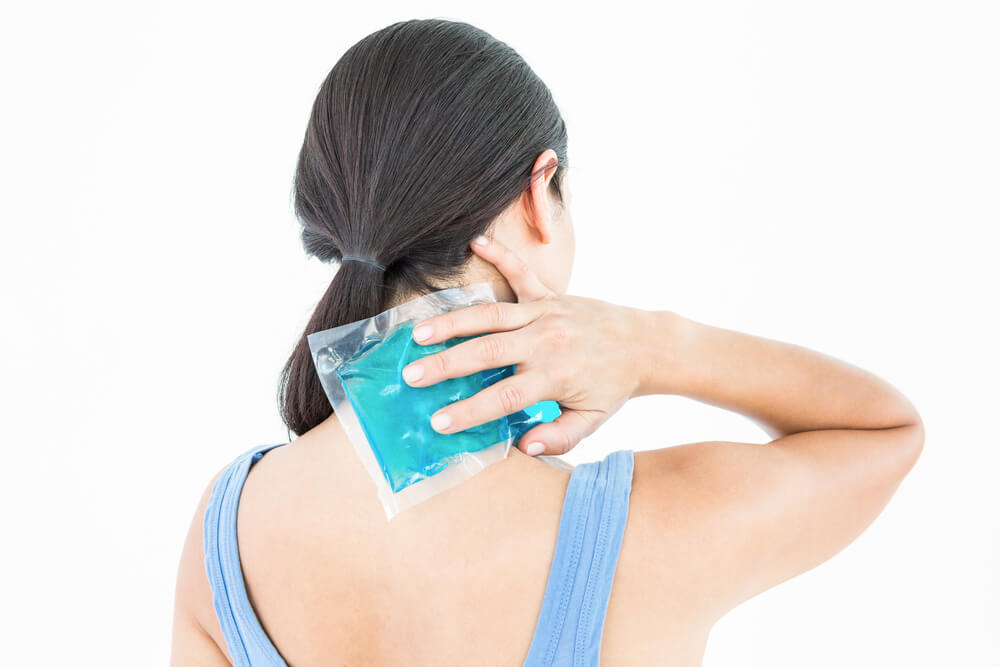
- Ice and heat therapy(1) are extremely effective as they improve the blood flow.
- Use an ice pack for cold compress and heating pad for hot.
- Use it for 15-20 minutes to reduce twitching and cramping.
CURE 2: Herbal Remedies
1. Cayenne pepper
- Cayenne pepper is a natural muscle relaxant that also releases muscle tension and cramping.
- It can be used in the powder form and can be added to food. You can also find it in the form of capsules and cream.
- Try to eat at least one food item with cayenne pepper in it. If taking capsule then take at least one each day.
2. Turmeric

- It is a natural analgesic with relieves inflammation and muscle cramping.
- It can be added in food or milk and tea.
- Try to drink one glass of hot turmeric every day before going to bed.
3. Ginger
- It soothes aching muscles due to its antioxidant(2) and anti-inflammatory properties.
- It can be added to food and tea to relieve muscle pain. It can also be consumed in combination with honey.
- Try to eat one food item with ginger in it every day.
4. Lemongrass
- It is rich in antioxidants and anti-inflammatory properties which treats muscle and joint pains.
- It can be added to tea and can also be used as an oil. Apply it twice daily on the affected area.
CURE 3: Foods
1. Cherry juice
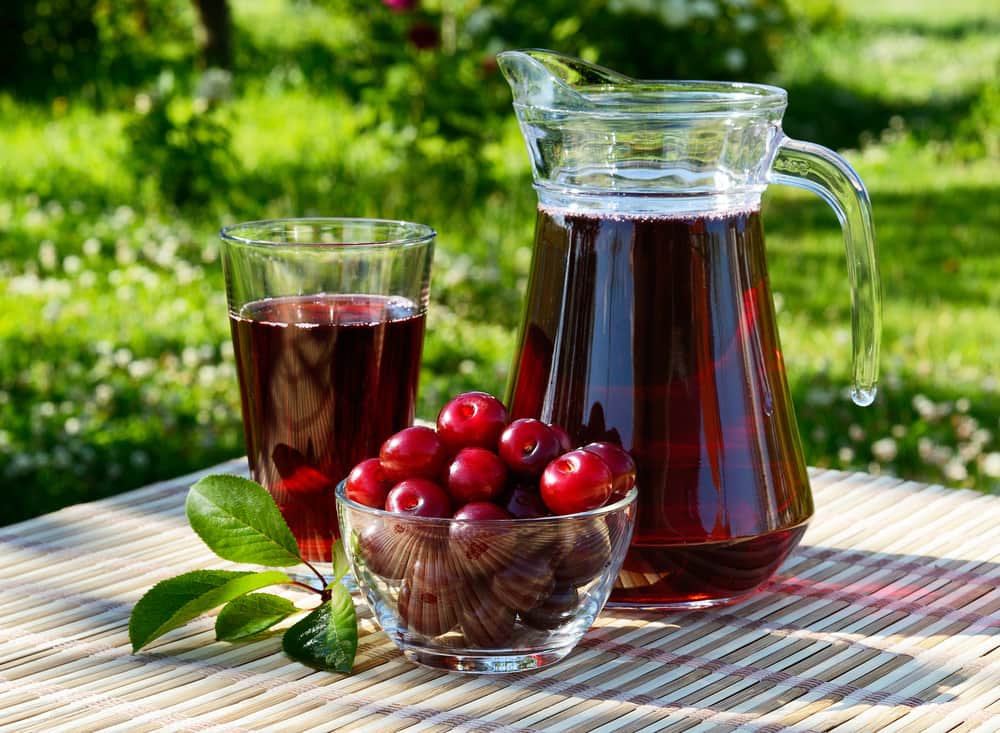
- It is rich in anti-inflammatory and antioxidant properties which reduces muscle pain due to twitching and cramping.
- You can drink cherry juice regularly or also eat cherries directly in raw form.
2. Blueberry
- It naturally relaxes the muscles and reduces inflammation.
- You can eat blueberries directly or make a smoothie of them. Try to drink one glass of it every day.
3. Pickle Juice
- It reduces muscle cramping due to its anti-inflammatory properties and also regulates blood flow.
- Fermented cucumbers can be used to make pickle juice. Make sure you also add some salt and vinegar to it.
- Drink a small glass of raw pickle juice at least thrice a week to improve muscle twitching.
Also Read: 8 Best Juice Recipes for Fast Weight Loss
CURE 4: Essential Oils
1. Chamomile
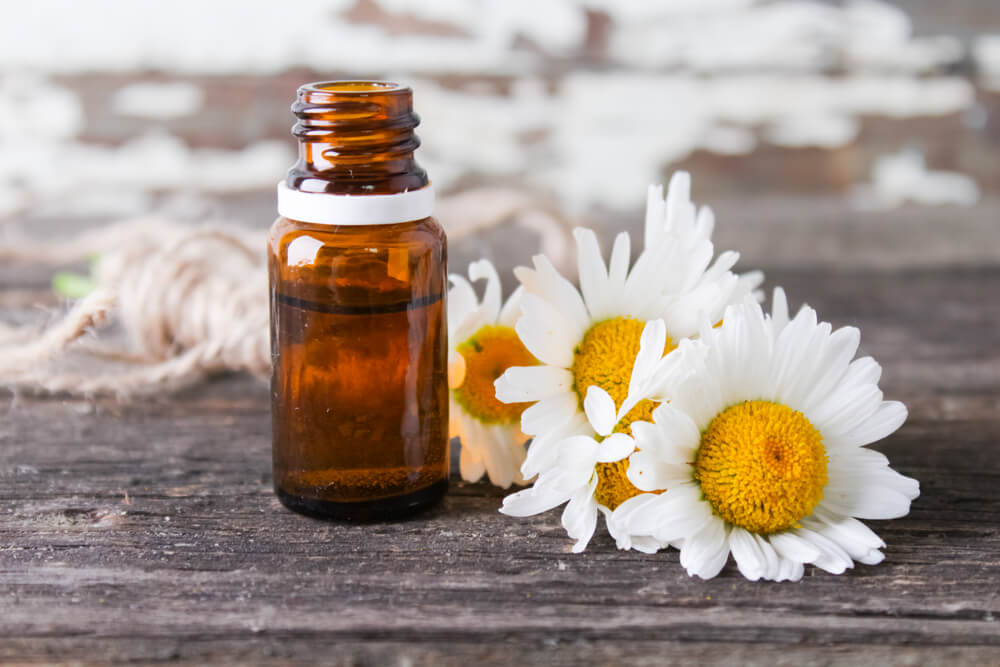
- They soothe the muscle by relaxing them and also reduces pain and inflammation.
- They can be used in aromatherapy, twice a week or in the form of bath oil.
2. Lavender
- It reduces stress and anxiety and also improves blood circulation and muscle strength.
- It can be used in the form of bath oils, twice a week.
3. Cannabidiol oil
- It helps treat chronic pain and muscle cramps and twitching through its rich anti-inflammatory properties.
- It is not legal and is hence difficult to obtain. It can be taken in the form of capsules or can be sniffed.
- Consult your doctor to know the correct dosage for your condition.
| The smallest muscles in the body are in your inner ear. |
CURE 5: Supplements
1. Vitamin D
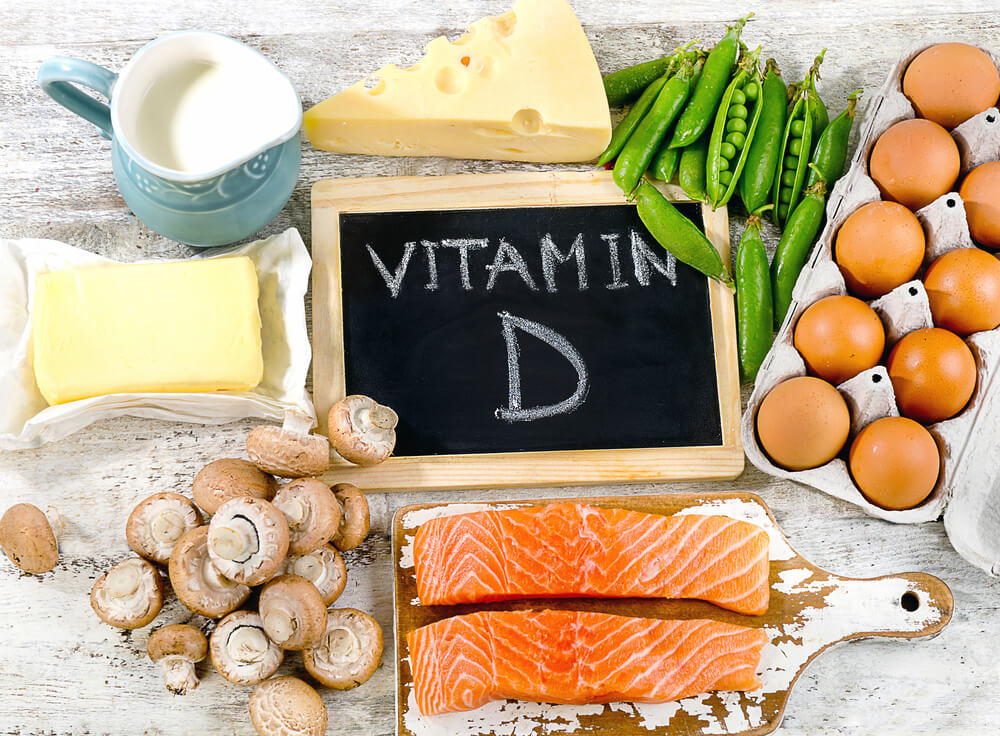
- Vitamin D keeps the bones and muscles healthy and reduces stress and weakness.
- You can take vitamin D supplements every day or eat food rich in vitamin D like cheese, cereals, egg, fish, etc.
2. Magnesium
- Magnesium maintains normal muscle and nerve function.
- Try to eat food rich in magnesium like beans, almonds, brown rice, bananas, etc. Try to consume one of these food items every day.
3. Vitamin B-12
- B-12 promotes a healthy nervous system and blood flow which eliminates the risk of muscle twitching.
- It can be taken in the form of capsules, take one every day. It is easily available at medical stores.
| The hardest working muscle in the body is the heart. |
When to See the Doctor?
It is important to visit the doctor if your muscle twitching is combined with other symptoms like dizziness, extreme muscle weakness, and nausea and breathing problems. The doctor might ask you to get some x-rays done or recommend some muscle relaxant medication to reduce pain.
You v/s Muscle Twitching
Muscle cramps and muscle twitching have always existed in human history. Do not think you are alone in this and do not hesitate to ask for help from friends and family in stressful situations. Also, keep in mind the above mentioned natural home remedies to combat muscle twitching easily and efficiently.
FAQs
1. What is stomach muscle twitching?
Like any other muscle in the body, twitching can be experienced in the stomach also. It is usually caused due to over exercise, fatigue, excess alcohol consumption, etc.
2. Can one experience muscle twitching due to fibromyalgia?
Fibromyalgia is a musculoskeletal disorder and can thus lead to twitching. It is often accompanied by fatigue, sleep disorder, memory loss, etc.
3. What is thumb muscle twitching?
One can experience thumb muscle twitching suddenly without warning. They usually do not last for long and go away on their own.

